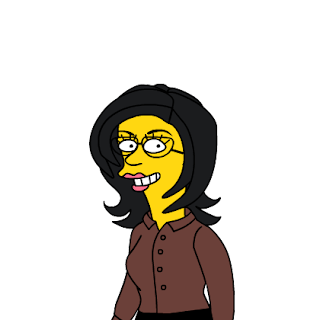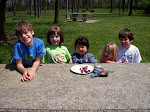Before becoming a delusionally bad poet due to my current illness, I’d been reading “50 Facts that Should Change the USA” by Stephen Fender, an American born in San Francisco but educated and residing in the United Kingdom. The book is well written and fairly balanced. I enjoyed expanding my knowledge surrounding facts that I already knew: There is one car for every adult in the U.S., Over twice as many Americans claim to go to church as actually do, Only 18% of Americans hold a US passport (our entire family does...I'm just not sure where that "special place" is that I put them to keep them safe), and When Bush cut taxes for the rich in 2004 the family that owns Walmart increased their wealth by $91,500 per hour.
Well, I didn’t know the specific numbers, but was fairly aware of those facts.
I also enjoyed learning some facts about America as well: that we’re generous with our time (donating more hours to volunteer work than the Japanese, Spanish, Italians or Australians), and that it’s the red states, the conservative states, that are the most generous with their time and money. New Hampshire, Massachusetts and Vermont have a few things to feel ashamed about in this area, I guess.
But, by far, the essay I enjoyed the most was, “Americans Aren’t Born; They are Made”. Now, of course, I like this one because I’ve seen it play out so fully in my life.
He begins the essay by briefly laying out the fact that our nation was founded, something not all nations can lay claim, and that that founding was ‘advertised’ by our Declaration of Independence. In retrospect, doesn't it make sense that we would have an ad as one of our first great documents? Continuing on, that founding was codified by the Constitution. Fender terms the Constitution as the “greatest artifact of the collective imagination” and states that it makes becoming an American “as much a contract as a country.”
He points out that for an immigrant to become an American you must test in its laws and that by understanding and agreeing to those terms you can choose to be an American. Now, my girls became Americans through their adoptions, so there was no test. Rob and I did, however, have to sign a paper stating that they had no intention of practicing polygamy, dealing in drugs or becoming involved in terrorist activities. It was a lot to take on ourselves as no one knows for certain just what a 2 or 3 year-old is planning to do. I did vouch for them, though, and when the plane wheels hit the ground in Detroit, they were immediately American.
In other countries you can test and become a citizen, but Fender essentially contends that while a person might become a citizen of that nation, they don’t become one of them. The example he gives is a man name Robert Maxwell. Maxwell was born in Czechoslovakia, but became a full-fledged, military serving Brit. Despite living his entire adult life in Britain, raising his children as Englishmen, participating in military service, political service and financial work, the citizens of his adopted nation never considered him fully British.
In fact, in his obituary, the London Daily Mail claimed that he never fully understood what it meant to be an Englishman!
Fender compares that to Henry Kissinger in the U.S.
“Born in Germany just 14 days before Robert Maxwell, Kissinger never felt the need…to smooth out his gravelly European accent. Did he still feel like an outsider in America? Whatever they may hold against him for his foreign policy, will his memorialists say that he never learned to understand what it meant to be an American… How absurd it would be to expect anything remotely similar being said and written by and about Henry Kissinger. He became fully-fledged as an American when he was naturalized as a United States citizen on June 19, 1943. Since then, he has been at the center of the American establishment, even serving as the country’s senior official representative to the rest of the world, as Secretary of State. As an American, he was made, not born.”
John Steinbeck pointed out that all Americans are descendants of criminals or adventurers, which is, while a very romantically Steinbeck point of view, probably only partially true. I would add to that many Americans are also the descendants of the natives whom survived what was essentially a genocide or slaves that survived horrors of slavery. And, then there are the kids, like mine, who are the survivors of life in orphanages. So, it does seem that there is a spark of some sort that unites anyone who does make it in this country, especially when you consider that a large number of people who tried to immigrate here actually ended up returning to their original country.
I've seen in my girls how, in this country, you truly can be fully American, and yet not need to snuff out what was there before. They don't have to give up a love of their birth country, in fact they can even celebrate the heritage that they left. It's like a marriage, in that there is no need to give up who you were before you married, only the need to craft yourself into a new unit, to merge those two personalities into one.
While I know that everyone who has come to this country has not had the success story that Henry Kissinger had (and that many would argue if Kissinger was truly successful), I'm proud to be a part of a country where there is hope. A friend of mine from Africa told me, "In this country, at least a child can dream and there is a hope that the dream can come true."
So, tomorrow, my Kazakh-Ukrainian-American family will watch the inauguration of our country's first African-American President, and, for the first time in a long time, my heart will be very proud that I am an American. I may not agree with all his politics, but it is so inspiring to see that God has begun to heal one of our nation's greatest wounds.
Plus, maybe now we'll start seeing a little diplomacy coming from Washington D.C.
I wonder what Henry Kissinger would think about that?






No comments:
Post a Comment